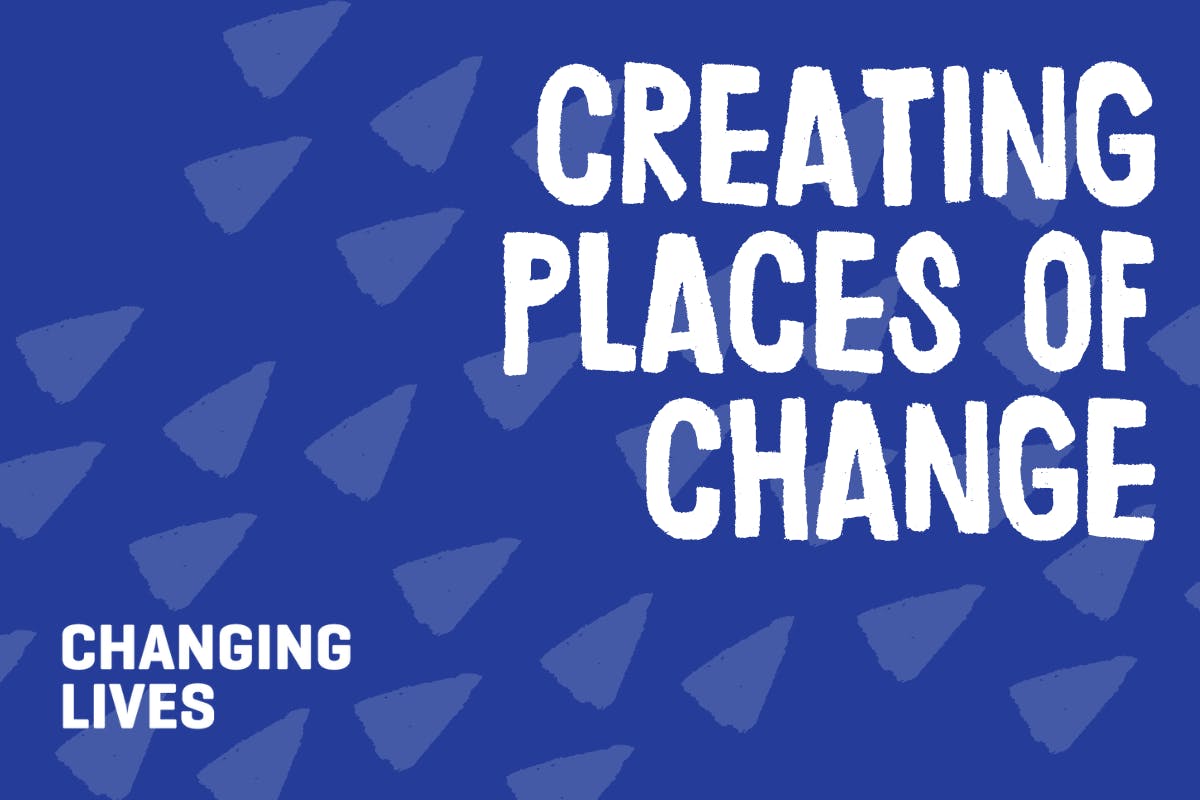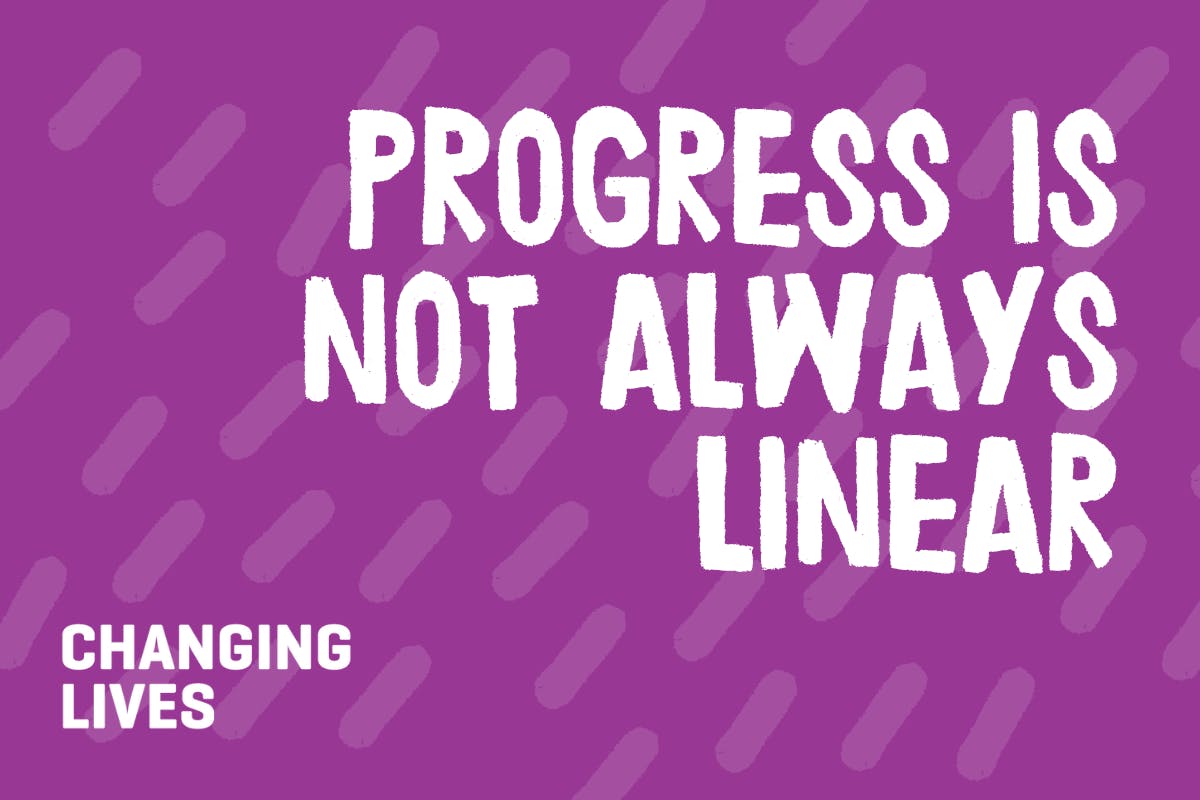James Ford, Housing Manager for Changing Lives at Union Terrace, reflects on his 15 year involvement in homelessness and housing services from being there at the outset of Union terrace, the changing nature of the support available and the differences in the people who now need that support.
How long have you been involved in Homeless services and when did you did you first start at Union Terrace?
I have been working in homeless services for over 15 years and I started working at Union Terrace in the summer of 2008 when the building had just been completed and was due to open its doors to support the homeless community in York.
Union Terrace was originally purpose built in partnership with Arc Light, CYC and York Housing who owned the building initially until selling it to CYC a few years ago. It was developed and built, and was part of government initiative to create ‘places of change’ across the country. It has continued to deliver exactly that for people for the past 15 years.
Describe Union terrace as it was then. What sort of service was being offered to people and what sort of people were you mainly supporting?
When the building first opened it was set up to work in a different way to how Arc Light, who ran the service back then had been working. They moved from an old train station building where they offered a bed for the night and some food that was cooked by volunteers and brought to the premises. Union Terrace offered ensuite rooms to give people privacy and dignity. It offered communal areas for staff and resident to interact and positive places to residents to spend their time. It offered one-to-one spaces for support staff to support the residents and help them back towards independent living. The old building did not have any of this and residents had to go to a different building to access the support they needed.
When Union Terrace first opened there was still a large culture of street drinking around the city, and we supported a lot of the street drinkers who, at the time, were seen as being heavily dependent on alcohol. We also supported those with issues associated with both chronic heroin use and poly drug use.
How long did people stay at Union Terrace, what happened once they’d left and did people often come back? If so, why?
Initially, we could support people for up to two years but sometimes people would stay with us longer depending on their support need. Our goal was to work with those we supported around their different needs and help them address those issues that contributed to them becoming homeless and to then help break down some of the barriers that prevent them moving forward.
Back then it was very much about using the housing pathway in the city to support someone to move from a 24-hour hostel into a shared house, where they could become semi-independent by cooking and doing their washing. They would still get some support weekly but would not have staff around all day, every day. The plan from there was for them to move into their own social housing tenancy with floating support.
Over the years, we have had people come back around and re-enter the services and some people have re-entered the service several times. It may just be that things didn’t work out for them the first time they experienced going through resettlement as this can be a difficult process. Unfortunately, some people struggle with the process and may be excluded or lose their place in shared housing time and time again, so they inevitably return to the service several times until it’s the right time.
I believe the consensus shows that this is due to multiple unmet needs and that people that have more than one support need can find it very difficult to work towards independent living and maintain a tenancy.
How did you find the work? Was it rewarding or did it have frustrations. Were there difficult moments and what were they like to deal with?
I enjoy the variety of working with people, as we know everyone is different and have different needs, so the support needs to be tailored to that person.
It can be very rewarding, when you support someone from losing their home, having a family breakdown and at a time when they feel lost and hopeless and you support them to move into a shared house and help find their way to getting their life back on track.
For some people they may never have had their own home and helping someone achieve this is a great feeling. It also has its frustrations and that comes from working with people as well. Some people struggle to engage because of the various needs they may have, and some people just don’t have the motivation to engage, change or move on to more independent living. I feel that some people live in a homeless hostel as there is no other viable option, and they become accustomed to that way of life and just don’t want to move on.
Describe Union Terrace now. Has it changed and in what way? Has the service delivery changed? What are you doing now that perhaps, you weren’t doing years ago.
Generally speaking the way we work with people has not really changed over the years and the housing pathway is still very similar. However, there are more options for people these days and that is beneficial for the people we work with.
We can move people directly into their own property whether that is through the Trainer Flat process, a Direct Let or through Housing First. There are other charities that offer shared housing where people can still move through the pathway and get their own tenancy but for those that want to stay in a shared house long term, they can.
We still use support sessions to help our residents get ready to move forward but the support team has had to be reduced over the years due to funding cuts. This means higher case-loads and less time for staff to spend with each resident. We have different teams in the city working with people experiencing homelessness so in reality, there may well be more people trying to support the homeless community overall.
What about the people who come to Union Terrace, have they changed and if so, in what way?
We still support people with many different challenges such as substance use and alcohol dependencies. I would say that we support fewer people who used to be classed as ‘street drinkers’ who, it was often thought, did not have the motivation to change and move forward at that time.
I think that we now support more people with mental health issues but that could be due to awareness and understanding of the different mental health issues that people might be experiencing. I also think that ther has been an increase in supporting a younger demographic across York, as there are greater pressures for young people to find independent and affordable accommodation, especially if they are under-25.
Are staff better trained to do the job – is it difficult to recruit?
Staff are not necessarily better trained, and the best training people you can have working in a homeless service is on the job training and working with those who are experiencing homelessness. I believe there is a wider range of training available as the sector has become more aware of working in a person-centred way and taking into account someone’s past trauma and understanding how that impacts on who they are.
How do you see the future of homeless services in York and in general, is there more pressure on services? Can we ever solve the problem of homelessness, or will we always need to be providing support in some shape or form in the mid or long-term future?
Continuing pressure on available budgets inevitably will have a knock-on effect on how services can and will be delivered. It could be difficult to continue to offer support at current levels.
I think there will always be a need to provide provision for people experiencing homelessness across the country and unfortunately, mental health difficulties, addictions, employment instability and family pressures will always be factors that can contribute to someone becoming homeless.





